#norman twain
Explore tagged Tumblr posts
Text
Forgive These Bones I'm Hiding (Part 1 of 2)

Pairing: Serial Killer Marcus Pike x f!Reader (Reader is a police officer with the nickname “Cricket”)
Rating: E (explicit smut, 18+ only)
Word Count: 6.8k
Warnings: This is a Spoooooooky fic for Halloween season. Please heed the warnings; this is not darkfic, per se, but it explores dark themes and contains elements of suspense and horror. The following subjects are mentioned in the context of cases that the reader deals with. I do not go into explicit detail about any of these themes and any violence is implied rather than seen, but please heed the warnings for: child abuse, domestic abuse, alcoholism, drunk driving, implied sexual assault, suicide, drug use, drug overdoses. Whew. Okay, for the story itself, please be warned that there is: derogatory language (someone calls reader a “bitch”), murders, body horror (corpses!), Marcus Pike being a bit unsettling, Very Enthusiastic Pussy Eating, unprotected PIV sex (this is fiction! use protection and also maybe don't fuck a serial killer!)
Summary: When five paintings are stolen from their frames, an unusual crime for your small-town precinct in Hannibal, Missouri, it's easy for you to project your insecurities about being a female police officer in a tiny, Midwest town onto the handsome FBI Agent from Washington who arrives to help with the case. But as your disposition--and the solid walls you've built around yourself--begin to soften, you quickly find you have bigger problems than the charming man you can't help but develop feelings for. One by one, bodies are starting to pile up. Bodies that all seem to share one connection… You.
A/N: This story is about Marcus Pike if he were a serial killer. If this concept gives you The Ick, please do not read this and then come to me telling me that you think it’s icky. You have been warned. Dead dove don’t eat, etc. I *have* taken pains to ensure that Marcus is not a bad man. He’s a murderer, yes, but he only kills the worst that humanity has to offer. He’s a serial killer AND he’s my perfect, unhinged baby. Cool? Cool. Thank you to @littlebirdsbookshelf for encouraging this nonsense, letting me scream about it on Discord from day one, and reading through it and helping me with the police procedural bits!
Masterlist
When the call comes to your desk at 8:30am on a Monday morning, you can’t deny that your initial response is excitement.
Who could blame you? Not much happens here in Hannibal.
The waver in the elderly museum docent’s voice reminds you to temper your eagerness. With a steady, even voice, you patiently repeat the information she gives you. You don’t bother pointing out that she really should have called 911, rather than the police station directly; she’s one of many older residents in this town who prefer to skip the middle-man, so to speak, and you don’t really mind being the first voice people hear after a crisis.
“Window broken… alarm power cut… five Norman Rockwells,” you murmur to yourself as you scribble down the details on a post-it. “CCTV nonfunctional… broken… cameras for show only… Yes ma’am. Yep, I know the place. I’ll be there in five minutes.”
“What was that?” Your CO asks from his office, not bothering to get up from his chair and come out into the bullpen. If you could even call it that. You’re the only regular inhabitant.
“Mrs. Ingram from the Mark Twain Museum. Someone broke in last night and cut five paintings from their frames.”
CO Hubbard squints, taking off his reading glasses and perching them on top of his head and staring at you like you’ve grown an extra head.
“Someone stole from the Mark Twain Museum?”
“Crazy, right? I’m heading there now.”
The older man grunts and nods, placing his bifocals back on his nose and returning his gaze to the Hannibal Courier-Post’s crossword.
You don’t bother turning on the lights on your squad car. The streets are damn-near empty on a Monday morning. Most of the residents’ shifts began hours ago at the factories downriver, leaving the small town to appear almost abandoned. For being the famed birthplace of one Samuel Clemens, it sure doesn’t bring much tourist traffic to Hannibal, Missouri.
Julia Ingram has been the Museum’s curator, docent, and gift shop operator since before you can remember. Despite her age, it seems as though she’s hardly changed from the time you visited the museum with your school group as a child. She greets you over thick wire frames kept in place with a whimsical beaded chain. Like most residents of Hannibal, she calls you ‘Cricket’–the nickname that’s stuck with you since your youth on account of your habit of sneaking out at night to stargaze. It’s hard to have much authority with the older citizens when they all remember you as a knobby-kneed preteen with a wild streak and a wilder imagination.
You let her lead you to the gallery of Norman Rockwell art on the second floor of the old building. You walk past old editions of Tom Sawyer, a collection of Mark Twain’s childhood possessions, and a life-sized raft similar to what Huck and Jim might have used on their Mississippi River journey.
The Norman Rockwell collection consists of fifteen paintings done for special editions of Tom Sawyer and Huckleberry Finn. Today, though, there are only ten. Five frames are empty; broken shards litter the floor where the thief bashed through the glass to retrieve the priceless papers within.
“Why did they have to go and break them?” Mrs. Ingram asks in a tearful voice as you snap pictures on your little point-and-shoot camera you take with you for cases.
“Takes up less space,” you shrug. “Framed art is conspicuous. The perp probably rolled the illustrations up for ease of keeping them hidden.”
Mrs. Ingram shudders at the mention of rolling up Norman Rockwell illustrations, and you give her a sympathetic look.
“I’m going to call in a forensics team from the St. Louis office,” you tell the elderly woman. “They’ll be able to dust for fingerprints. In the meantime, the museum stays closed. No visitors. And don’t go around touching anything, okay? I should be able to get a security guard to watch the crime scene until forensics is able to come in. If you need anything, you call me,” you tell her, handing her a business card with your cell number.
You rush back to the precinct with the intent of calling an old schoolmate in St. Louis to try and expedite the forensics team, but Sergeant Hubbard is out in the bullpen for once, and seemingly waiting for you.
“I promised Mrs. Ingram that I’d get a forensics team down there ASAP,” you say, trying to sidestep the man and get to your desk.
“This won’t take long,” the Sergeant promises. “And actually, you won’t be needing to send a team. I’ve got that covered.”
“You do?” you ask, frowning skeptically.
“This case is of National interest,” Hubbard explains. “The FBI has a dedicated team of Agents that specialize in art crimes, and the State has all but ordered that we go through them.”
“You’re going to involve the FBI?” You try to keep your voice calm and even, but you can hear the volume begin to rise in indignation. For once you’ve got a case that’s different, interesting even, and it’s slipping through your fingers after barely an hour of being under your purview.
“If we do this by-the-book–”
“I can handle this myself,” you can’t help but interject. “And since when do you give a shit about ‘by-the-book?’”
“No one is questioning your capabilities–”
“Oh yeah? Is that why I’m always being stuck with every domestic violence case that comes through the precinct while you always handle the bigger shit?”
“You need to watch how you speak to a commanding officer,” Hubbard growls.
“Like it or not, I’m the one with a personal connection to both Mrs. Ingram and the head of Forensics in St. Louis. The FBI is going to come here with all the subtlety of a jackhammer, and–”
“It doesn’t really matter what you think, because I’ve already contacted the head of the Art Crimes Department in Washington, D.C., and someone should be here tomorrow morning to take the case.”
Your mouth is a thin line, your jaw tensed, and your eyes dark. “Anything else, Sir?”
“The precinct is behind state quotas for speeding tickets,” Sergeant Hubbard says. “I want you to try and catch people coming from Illinois on I-72.”
“Understood,” you bite out through clenched teeth.
Armed with a coffee and bagel from Java Jive, you settle in one of your “favorite” hiding places along the interstate. After putting the driver’s seat as far back as it will go so you can stretch your legs, you take a long sip of your latte. You flip on your radar, but rather than watch for speeders, you instead scroll aimlessly through the news on your phone.
Everyone’s gonna be going the speed limit today, you’ve already decided it.

The Waterhole isn’t exactly a reputable establishment, but as the only bar in Hannibal, the options for getting a cold beer aren’t exactly pouring in. Every patron looks warily in your direction when you enter–it’s tough on your social life, being one of three cops in town–but you’re hardly in the mood for conversation. Everything about you says “Fuck off”: from your mud-covered work boots to the flannel you use mainly to take out the garbage in the winter. You can’t remember the last time you threw it in the washer, but there’s a chill to the air tonight, and everything else was either dirty or far too heavy for the weather. Your dour expression probably does most of the work, though. You scowl at the floor as you plod heavily toward the end of the bar and sit yourself on a rickety stool. The footrest is predictably sticky, and the bartop never looks clean no matter how many times the long-time bartender, Palmer, runs a wet cloth over top of it.
You hold up two fingers in greeting to Palmer, who nods cordially and hands you your usual.
The first sip is always the best–and dammit, you intend to enjoy it. You close your eyes, letting the liquid wash over your tongue before swallowing. It’s just cheap lite beer, sure, but this is the first moment you’ve allowed yourself to truly relax all day, and you can already feel your shoulders begin to relax and your jaw unclench.
Casting your eyes around the establishment (a habit you can’t ever seem to get rid of), you take inventory of the patrons. Just about everyone you’ve known since childhood. There’s Ellis and Danielle Hewitt, high school sweethearts from the graduating class just above you, in the corner sharing a plate of sad-looking nachos and twin Miller Lites. Tommy Blevins, the high school quarterback who, if you were a betting woman, was probably in the middle of telling his Tinder date about that big game back in ‘02 that cemented his reputation as a Hannibal ‘celebrity.’ Most of the men playing pool were fresh off a day shift from the oil plant in the next town over.
Yep, all of the usual suspects.
Plus one anomaly.
Once you see him, you aren’t sure how he evaded your notice from the moment you entered the bar. For one thing, he’s the only patron wearing a suit; everyone here only ever wears jeans. For another, he’s got that look of an outsider about him. You can always tell who’s from out of town: they have that subtle hint of insecurity with their surroundings that comes from being in a new place. His dark eyes look over the bar scene with a fresh, discerning gaze–seeing it for the first time, rather than for the three hundredth.
Like you, the man seems to instinctively people-watch. He’s not obvious about it, or anything, but you can see his pupils flitting from the Rams game to scan the crowd as if he’s looking for something.
Or maybe waiting for something.
Given this behavior, it shouldn’t surprise you when your eyes eventually meet. Embarrassed at being caught-out, you give him a crooked not-really-a-smile. He smiles back–a genuine one, that exposes a set of perfectly straight, white teeth and a small dimple on his right cheek.
Your manners are hard to come by this evening, but you manage a friendly, albeit stiff nod, raising your beer bottle in a silent toast.
The man’s smile widens.
A commotion from over at the pool tables draws both of your gazes to the group of men–now seemingly arguing about the score. The main agitator is, predictably, Bobby Pearson. You drain your bottle with a sigh, shoulders tensing automatically as you anticipate the inevitable way that this ends.
You can see the glassy sheen to Bobby’s eyes from where you are, the way he’s swaying slightly as he gesticulates wildly with the hand holding the pool cue. You don’t need a breathalyzer to know that Bobby is way over the legal limit. Hell, all you have to do is spend more than a week in this town to know that this behavior is the norm, rather than the exception.
You feel bad for the man, really. It’s no secret that he came from an abusive home. You remember the horrifying stories you'd heard about his father when you were his classmate in middle school. He was a nice enough kid-you remember him well–but when he grew up and got married, he wasn't ever able to escape the demons of his past. His erratic behavior was enough for his wife to leave with their two children. Last you heard, they lived in Maine. Probably about as far away as you can get from Hannibal without actually leaving the continental US. What he needs is therapy, but those types of resources are damn-near impossible to get out here. Everyone in Hannibal looks the other way as he drinks himself into a stupor every night.
Occasionally, though, there will be an incident, and Bobby has to spend the night in the holding cells. You have a feeling you’re about to witness one of those incidents right now.
The waving of the pool cue becomes more violent; he switches his grip, wielding the stick like a weapon as he continues to yell, spittle landing on his cheeks and his shirt as he slurs another insult.
Getting up from your stool, you carefully approach the scene.
“That’s enough, Bobby,” you state calmly. “I think it’s time to head home, how about you?”
“I think it’s time for you to mind your own fucking business, Cricket,” Bobby slurs back.
“Good one, Bob. Got anything else you wanna say to the off-duty cop?” You shouldn’t be taking the bait–you know it even as you say it, but you’ve had a shit day, and sometimes we all say things we regret, right?
“Yeah. I wanna say… maybe you wouldn’t be such a fuckin' bitch if you had a good dicking.”
Several of Bobby’s pool buddies back away, eyes wide as dinner plates.
“That’s enough. Go home. I don’t want to have to place you under arrest,” you say, trying to regain control over the situation.
“I could give it to you," Bobby sneers. "Give the uptight police lady a nice, hard, fu–"
With a heavy sigh, you retrieve your cuffs from the back pocket of your Wranglers and maneuver Bobby onto the nearest pool table. He's so drunk that he falls on his stomach without much effort on your part.
"Aw, fuck I was only jokin’," he mumbles into the green fabric.
"And it was real funny, Bobby. Hilarious even," you deadpan as you click the handcuffs into place. "Come sleep it off at the precinct, and you can apologize in the morning."
"M'shorry," Bobby groans as you manage to wrench him upright and guide him to the exit.
It's only then that you notice the newcomer at the periphery of the scene–standing back, not intervening, but making it clear that he's on guard should things go south.
"Are you okay?" the stranger. "Need help?"
His nosiness annoys you. "Got it handled, thanks," you snap with a little more hostility than you mean to.
It's been a shit day.
You wrestle Bobby into the car and slam the door. On the way back to the precinct, you glower at the road in front of you while the man in the backseat begins an ear-splitting rendition of Bohemian Rhapsody. On tonight of all nights, you grumble to yourself.
He's asleep before he even hits the threadbare pillow in the holding cell. You nod to your nighttime counterpart, Evan, who gives you a sympathetic smile.
"What was it this time?"
"Some argument over pool at the Waterhole. Get him something substantial to eat when he wakes up, okay?"
"Always do," Evan replies. "You all right? He give you trouble or somethin'?"
"Just a shit day."
"Go get a drink and relax."
"'S'what I was trying to do," you gripe. "In fact–shit–I skipped out on my tab. I'm gonna go back and settle, and try again in the comfort of my own home. Dunno why I even go out."
“Beer’s cheaper at home, anyways,” Evan comments with a wry grin.
“Another excellent point,” you throw over your shoulder, giving him a crooked grin as you walk back out of the building.
Palmer is waiting for you with his hands on his hips when you return to the Waterhole.
“Not sure what you’re giving me that look for, Palm, you know I always settle my tab.”
“Better late than never,” he grouses.
You bark out a laugh. “You say that like it’s been a day, and not–” you check your watch, “–an hour.” You slide your debit card across the stained counter.
“Not gonna have another?”
“Nah, I’ve got better shit at home than the swill you serve here.”
You and Palmer stare each other down for a few moments. You aren’t sure who breaks first, but it’s almost always Palmer. The bartender chuckles and sticks his hands in his pockets.
“Shit, Cricket, you know you can’t stay away from the finest establishment in Hannibal.”
“It’s a good thing you’re the only establishment in Hannibal.”
“And it’s a good thing you’re a good tipper, or I would have banned you years ago.”
“Doesn’t seem smart to ban any of your customer base, considering the local population. It’s shocking you haven’t gone under.”
“Beer is always in demand,” Palmer says with a wink. “No matter what the economy’s doin’.”
“You’ve got me there.”
You glance around the bar. The crowd has thinned out quite a bit; day shifts start early, so the nightlife is pretty limited past eight pm. A few stragglers remain, including… him. The stranger.
The newcomer in the suit is watching your conversation with the bartender with an amused smile. When he notices you looking at him, he raises his glass in salutation and gets up from his stool to approach you.
“Buy you another?” he asks with a smile.
“I just settled,” you say evasively.
“On me,” the man insists.
“Surprised you’re still here,” you comment lightly. “Shouldn’t you be back on your way to St. Louis, or something?”
The man lets out a surprised, pleased laugh. “You’re observant.”
“It doesn’t take a genius to figure out you’re not from around here.”
He gives you another one of those wide, toothy smiles as he raises two fingers to Palmer, who nods.
“Well, you’re partly right. I’m not from around here, but I’m not from St. Louis.”
“Where are you from?”
“Let’s save that little nugget for later,” he suggests, sticking out his hand. “Marcus.”
You shake his hand, still feeling a little wary of the newcomer. If Marcus is bothered that you don’t offer your name right away, he doesn’t show it.
“...Cricket, right?”
You laugh in surprise. “That’s what everyone calls me ‘round here.”
“What can I call you?”
“Officer.”
Palmer sets two bottles of beer down on the counter in front of you, and you shrug and take one of them. Marcus gently taps his own against yours and takes a sip.
“To new horizons,” he says with a smile.
“To doing the same shit every damn day,” you respond with a wry grin.
“Do you do that every single day?” Marcus asks, jerking his head in the direction of the pool tables, referencing Bobby’s arrest.
You let out a huff of laughter and take another swig. “More than I’d care to, I’ll say that much.”
“He have a history of drunk and disorderly conduct?” Marcus asks.
“He’s got a history of that, and a whole helluva lot else,” you say with a sigh. “He’s mostly harmless, though. Doesn’t do much else but drink and cause trouble nowadays.”
“He did worse in the past?”
You shrug and wave Marcus off. “It’s a tale as old as time,” you say. “Grew up in an abusive household and then turned around and perpetuated it himself when he grew up. Pushed away his family, his wife, his kids, everyone really. But now the only one he ever hurts is himself.”
“He said some pretty awful things to you earlier,” he points out.
“If words had any effect on me, I wouldn’t have made it a week in the force,” you say. “Takes a lot more than that to rile me up.”
“Can’t really imagine you all riled up,” Marcus says, his eyes twinkling with playfulness.
He’s flirting with you.
“I save it for special occasions.”
“So what, you just arrest this guy over and over again, letting him sober up in the holding cells until he does it again?”
Your smile fades. Tipping your bottle back and draining it in three large gulps, you set it down heavily on the table and give the man across from you a stony look.
“I don’t know what big city you’re from, Marcus, but this town is different. We take care of our own, no matter how difficult they’re being. We’ve done everything we can–tried to get him into rehab, into therapy programs, support groups… it never sticks. At this point, he’s spinning out, and the most I can try to do is to treat him with kindness and make sure he gets a decent meal while he’s sleeping it off in the drunk tank. Enjoy your night.”
You get up, spin on your heel, and you don’t look back at the man again.

You don’t know how you didn’t put two and two together until this moment–the minute you walk into the precinct at eight am sharp to meet the FBI Agent assigned to this case–your case.
The suit. The discerning, assessing gaze. The bravado. The big-city attitude.
Marcus is the FBI Agent.
His eyebrows raise for a moment when you walk into the bullpen, but other than that, he doesn’t appear surprised. He introduces himself as Agent Pike, sticking his hand out for you to shake as if it’s the first time he’s done so. You give him your last name–and only your last name–and grip his hand a little more forcefully than usual.
It only causes his smile to widen.
You exchange a quick conversation with Evan, who fills you in on the rest of the night (uneventful) and lets you know that Bobby is already out of the drunk tank and back at home.
“Did he say anything?” you ask.
“Like what?”
“Like an apology.”
“Should he have?” Evan asks. “Did he do something last night?”
You shake your head. “Nah. It’s fine. He probably doesn’t even remember, anyway,” Turning to look at Marcus, you add, “Ready to head to the museum?”
He takes up all the space in the passenger seat of your squad car and then some. You do your best to ignore him as you drive, but your eyes keep returning to his dark, slightly mussed hair and the way his broad shoulders fill out that suit of his. It’s hard not to notice how attractive he is.
"So. Washington."
"Huh?" Marcus looks at you, questioning.
"That little 'nugget' of information you said you'd save for later. You knew, didn't you. You knew I was the cop on this case."
"Well, it wasn't hard to guess when I had a copy of the Hannibal city directory and there was only one female officer on staff."
"Guess you've got us all figured out, huh," you mutter irritably, and the car returns to silence.
“Mark Twain Lighthouse,” Marcus reads from a road sign, breaking the quiet. “Mark Twain Memorial Library, Mark Twain Museum.”
“Bet you can guess what this town is famous for,” you quip.
“How many guesses do I get?”
“I mean, I’d hope you already knew about our claim to fame, if you read even one sentence of the case file we sent you.”
“You mean the case about the five missing original illustrations by Norman Rockwell from Tom Sawyer and Huckleberry Finn from the Mark Twain Museum?” Marcus says wryly.
You scowl at his nonchalance. You knew it; you knew the FBI would send some big city asshole who didn't give two shits about the town's heritage.
"I'm sorry," Marcus says, suddenly looking concerned. "Did I say something wrong?"
"This was my case, you know," you mutter, keeping your eyes on the road. "Finally, something besides domestic disputes handed to 'Officer Cricket,' and I have it for less than twenty-four hours before some Washington bigwig comes and takes it off my hands."
"Wha–hey, hang on a second. That's not what this is," Marcus insists.
"Isn't it?"
"No. No, it's not like that. I'm here in a consulting role. You still get credit for being the lead officer on the case, but it'll be our forensics team and our analysts providing support. That's it."
You look sidelong at Marcus. His expression is open and unguarded, and you can't detect any dishonesty in his body language.
"That's it?" you repeat cautiously.
"Is that what all the animosity was about?" Marcus asks, without any malice in his tone.
You mumble something about having a chip on your shoulder, and Marcus chuckles beside you.
"I wasn't always from Washington, you know," he says.
"No?"
"Little town called Bastrop."
"Bastrop?" you laugh. "Never heard of it."
"Little place just east of Austin," Marcus says, letting a little bit of southern drawl slip into his voice.
"You're from Texas," you say, surprised.
"Yes ma'am," he answers playfully. “I worked out of the FBI field office in Austin for almost ten years before getting promoted to HQ.”
“Congrats.” You give him a small smile as you pull into the museum parking lot. “This is it.”
Marcus charms Mrs. Ingram immediately, which doesn’t really surprise you at this point. The man seems to be made up of mostly charm, with a side of goofy jokes. The FBI’s forensics team won’t be at the museum for another hour, so Marcus takes inventory of the crime scene, snapping a few photos while you chat with Phil, the security guard.
When Marcus’s team arrives, the scene is a flurry of activity. Evidence is bagged, frames are dusted, and more pictures are taken. True to his word, Marcus defers to you, letting you run the scene despite clearly having a relationship with most of the team.
The day is a busy one–after spending the entire morning at the museum, you head back to the precinct to complete all the paperwork. Marcus buys the precinct lunch, and as you eat, he ends up launching into an informal, unintended lecture about art preservation, restoration, and how important it is to properly care for stolen art that his team has recovered. It makes you see him in a new light–not simply a representative of a faceless, uncaring organization that’s coming in to take over your case, but the leader of a team who cares deeply about every item they’re tasked with recovering. The man himself is painfully competent, every sentence out of his mouth demonstrating his level of experience and his love for the field.
Despite not knowing much about art yourself, you find his enthusiasm addictive. You can’t help but engage with him–asking about past cases he’s been on and listening intently to his stories, which range from the mundane to the incredibly dangerous.
“...so a couple of us ended up going undercover and smuggling our own recovered artifacts back across the border,” Marcus is explaining, waving the remains of his sandwich in the air as he smiles fondly over what sounds to you like a harrowing escape from a Mexican cartel.
You know you’re hanging off of every word, although you try very hard not to look like you’re hanging off of his every word. Still, the lunch break runs long, and suddenly you remember you were supposed to be back on patrol an hour ago.
“Shit,” you hiss, checking the time, making Marcus wince sympathetically.
“Listen to me, rambling on and keeping you from doing your job,” he says self-deprecatingly. “Seriously, tell me to shut up next time.”
He stands when you do, offering his hand for you to shake.
“Here,” you say, handing him your card instead, which has your work cell on it. “Just in case there’s any issues.”
“Thank you,” he says earnestly, looking into your eyes. “Thanks for entrusting this case to us–I know there’s always a level of territoriality that comes with involving the FBI, but I’m here to promise that the whole point is to work with you–not to come in and take over.”
You nod, and finally accept his hand, shaking it firmly. “We got off on the wrong foot, but I’m glad you’re here. You’re obviously more than knowledgeable about the field–more so than any of us–and I know I can speak for all of us when I say we appreciate the extra support.”
Marcus’s hand is warm against yours. The handshake might be firm, but it still feels as though he’s cradling your hand gently–as if he’s holding something delicate and precious in his palm. His eyes are endless; you feel as though you could read every emotion within them if you looked long enough. As you look, the corner of his mouth pulls up in an adorable, crooked grin.
“It was good to work with you today,” he says with finality. “See you bright and early tomorrow.”

You aren’t expecting the call that comes in the next morning–before you can even show up at the precinct to work with Marcus on the art theft case.
Bobby Pearson’s landlady, barely understandable through her hiccuping tears, explaining that she usually lets herself in to give him his mail, found the man hanging from the ceiling fan in his living room.
Your heart hammers dully in your chest as you notify the coroner and drive–lights on, this time–to Bobby’s place, with Sergeant Hubbard in tow.
“Cricket,” his landlady sobs as you get out of the squad car.
“I know,” you say soothingly, putting a hand on her shoulder to provide what little comfort you could.
“It’s awful. Oh, God, he’s just hanging there, and–”
“It’s okay, you don’t have to talk about it. Why don’t you stay out here and wait for the Coroner while we go in, ‘kay?”
You take a deep breath to center yourself, then open the door to Bobby’s little duplex apartment.
“Jesus,” Hubbard mutters behind you.
You swallow hard at the sight of the man suspended from the ceiling fan. The inherent wrongness of witnessing a dead body never ceases to unsettle you. You think you could do this job for five hundred years and still never become desensitized to death. It’s the stillness that disturbs you the most; no one realizes how much bodies move until they aren’t doing it.
You glance around the room, taking in the toppled chair a few feet away. Fuck. You knew Bobby was spiraling, but you had no idea it was this bad. You think back to the other night–were there signs that you missed? Something that could have alerted you to the fact that he was in crisis?
The flash of a camera lights up the dim room, and you flinch.
“Sorry,” Hubbard mumbles. His face is grim as he snaps a few more pictures–the rope, the chair, Bobby’s puffy, swollen face–
Feeling nauseous, you look down at your shoes.
Somewhere in the apartment, something beeps.
“Fuck was that?” Hubbard wonders.
“Sounded like it was coming from the kitchen.” You move further into the house to investigate. In the kitchen, nothing immediately stands out to you, until you realize the microwave timer is blinking the word “END” in perpetuity, alerting an occupant who can no longer hear that his food is ready.
Frowning, you open it, taking in the reheated frozen dinner sitting–cold, but unfrozen–on the turntable.
“That’s weird,” you mumble.
“What’s weird?” Hubbard asks behind you.
“He made dinner, but didn’t eat it. If he was planning on killing himself, why make dinner? Why leave it in the microwave without eating it?”
Hubbard shrugs. “Forgot, I guess.”
Your frown deepens as you stare at the colorless potatoes and rubbery salisbury steak. Awareness tingles at the base of your spine–a little nagging voice whispering This isn’t right.
The sound of the front door opening again makes you jump.
“Hoooo, boy…” the Coroner breathes upon entering. “Dammit, Bobby.”
In your years as a cop, you’ve already learned that dealing with a body is an all-day affair. The day seems to pass you by as you deal with the fallout–phone calls, paperwork, and of course, the solemn affair of cutting Bobby down from the fan in the most respectful way possible. You don’t even remember to look at your phone until just before your shift ends–so the text message from Marcus that reads, “Time to jump on a quick call re: forensics?” is hours-old by the time you see it.
You tap out “Sorry, had a work thing come up that occupied the whole day. Connect tomorrow am?”
The reply is almost instantaneous. “Buy you a drink after a rough day?”
Your thumbs pause over the keypad. On the one hand, going out for drinks with Marcus makes you feel uneasy. There’s a mutual attraction there, you can tell that much, and you don’t trust yourself not to indulge in a little stress relief if Marcus tries to initiate it.
And you have a feeling he might. Try, that is.
On the other hand, coming home to an empty house with nothing to keep you company but the image of Bobby Pearson’s oddly dangling feet that’s branded on your eyelids makes you physically recoil.
“I’d ask where, but I think we both already know the answer.”
“I’ll be there around seven,” comes Marcus’s response.
At home, you turn the knobs in the shower until the temperature causes steam to fill the entire bathroom. The water burns your skin, but the pain is welcome, and you aren’t sure how long you remain unmoving under the stream until the hot water abruptly runs out. Yelping in shock, you hastily squirt some body wash onto a rag and frantically rub it up and down your body, then spin around under the stream three times as fast as you can to remove the suds before turning off the faucet.
Shivering and dripping wet, you suddenly start to laugh.

Marcus is already seated at the bar of the Waterhole when you arrive. The suit coat is gone, his sleeves rolled up to the elbows as he nurses a whiskey. You’re suddenly conscious of the fact that you’re dressed quite a bit nicer than you were on the night you met him–you even wore the non-muddy boots… and the jeans that you know make your ass look good.
“Hey,” you say by way of greeting, sliding onto the barstool next to him.
Marcus slides an identical cocktail glass over to you. “Thought you might need something a little stronger than beer,” he comments.
You snort. “How did you know?”
He shrugs, a faint glimmer in his eye as he watches you take a sip and wince at the burn in your throat.
“Had a hunch,” he offers.
“Well, it was right,” you sigh. “Might need a few more of these tonight.”
“Must have been one for the record books.”
It’s your turn to shrug. “Not really. Just another fucking day.” You take another sip, and the burn is more welcome this time. “I think the fact that it’s so common is what so fucking depressing.”
Marcus doesn’t ask you what you mean, and for that, you’re grateful.
“I don’t know what’s worse,” you grumble to yourself. “Suicides, or Fentanyl overdoses.”
Your companion is quiet for a long time. You aren’t in any shape to try and steer the conversation, so you take a few more sips of whiskey and stare into the middle distance.
“What made you want to become a cop?”
You snort again, even more unattractively this time. “Ten years ago I would have told you it was to help people and keep the community I grew up in safe.”
“What about now?”
Only one more sip remains in your cocktail glass, so you throw your head back and drain it, setting it down heavily on the counter. Palmer glances in your direction, a question in his eyes, and you nod.
“I don’t fucking know,” you sigh. “Ask me tomorrow, maybe I’ll have a better answer then.”
Palmer brings over the bottle of Crown and pours another finger into your glass.
“What about you,” you ask, only because it seems like the correct way to continue the conversation. “What made you join the FBI?”
Marcus grins, showing those perfectly straight teeth of his. At this distance, it seems less friendly and almost… predatory. You blink rapidly, shaking your head to dispel the thought.
He tips his glass against yours, then drains it himself. “To make the world a better place, of course.” His smile is wry as he signals Palmer for another.
“How’s that going for you?” you ask. The question is tinged with sarcasm.
“Depends on the day, I suppose.”
“Ha. Fair.” You take another sip. “Guess it’s the same for me. Some days it feels like I’m making a difference. Other days it feels like I’m filling speeding ticket quotas so that the town gets enough fucking tax revenue for the year.”
“Hey now, getting the funds to fix potholes is a noble and worthy cause.”
“I dunno where it fucking goes, but judging by the state of 36, it ain’t going there,” you chuckle.
“I happen to think you’re making a huge difference,” Marcus says soberly. “You get to do real, concrete things to help real people. One of the things I had to get used to in DC was that I didn’t feel like I was helping individuals anymore. It’s so much more high-level, sometimes I feel like all I do is send emails and have meetings. That’s why I like consulting,” he says, grinning at you. “I get to go to towns like this and actually talk to people.”
You pause with your glass halfway to your lips. “I… I guess I’ve never thought of it that way before.”
“You do good work,” Marcus tells you softly. His voice is full of sincerity; his eyes are deep, endless pools, and it feels as though they’re drawing you in. Licking your lips, you can feel the effect of the whiskey already by the way the skin of your tongue tingles slightly.
“Thanks,” you say quietly. You aren’t sure what else to say.
Your second glass is emptier than you thought. Had you really drunk it that fast? You huff a small laugh out of your nose, and swallow the last mouthful of whiskey. It barely even burns anymore.
“‘Nother?” you ask, blinking hopefully at your companion.
“If you like,” Marcus replies, giving Palmer a polite wave.
“Ain’t nothing at the bottom of the bottle,” the bartender teases, refilling both of your glasses. “You two seem to be convinced otherwise, though.”
You ignore him and quickly take another sip, making Marcus laugh.
“They say there’s only two kinds of people,” he says. “Those who drink to remember, and those who drink to forget.”
“If you’re about to ask me which kind I am, then you haven’t been paying attention to the conversation we’ve been having,” you tell him.
“You drink to forget,” Marcus supplies. “You’re right, I don’t need to ask to know that.”
“Then what was the point of… of the thing you said?” you ask, frowning in confusion.
“I drink to remember,” Marcus says quietly, staring soberly at his glass.
“Remember what?”
“People. Old loves, old friends.” He takes a small sip. “The living, and the dead.”
“Oh,” you say dumbly. Your tongue feels thick in your mouth.
“What else do you want to forget?” Marcus asks gently.
“So I dunno if you are aware,” you say, swaying slightly in your seat as you gesticulate, “but female ossifers–officers–uh, they’re often handed sexual assault cases, domestic abuse, fuckin’... fuckin’ child neglect, that kind of shit. And I’ve had… I’ve–” you break off with a shudder.
“Had your fair share of those, huh?” he says, covering your hand in his.
“Mmm, ’s'warm,” you remark, closing your eyes and basking in the feeling. “It’s… it’s the ones that weren’t brought to justice that keeps me up at night,” you whisper, eyes still closed. “Sympathetic judges who give rapists light sentences. Wives whose request for a restraining order went ignored. Kids who–” you let out a tiny sob, “–kids who are spending their childhood in foster care because both of their parents overdosed in front of them. I… I fucking tried. I fought hard for them, and in the end, does it matter? Does it matter, when they’ll be fucked up for life anyway?”
“It matters,” Marcus says, his voice suddenly firm. “It fucking matters, Cricket.”
“Every time they walk free, it eats at me,” you continue, emptying your third glass.
“Tell me,” he demands softly as Palmer automatically pours you another. “You’ve been carrying their names with you for years, maybe this is how you let it go.”
#marcus pike#marcus pike x you#marcus pike x reader#marcus pike x f!reader#marcus pike fanfiction#the mentalist#the mentalist fanfiction#pedro pascal
147 notes
·
View notes
Text
Francis Abernathy: fake pince-nez
I was wondering where Francis ‘borrowed’ this accessory, so let there be some observations.
First of all, there’s a sassy definition of a typical dandy by Paul de Saint-Victor (La Presse, 21 August 1859):
'Black Prince of Elegance, the demigod of boredom who looked at the world with an eye as glassy as his pince-nez, suffering because his disarranged cravat had a crease, like ancient Sybarite who suffered because his rose was crushed.'
Then I thought that red hair combined with pince-nez reminds of Ezra Pound, known for his dandyish style and some other unpleasant things.
[Considering that Henry Winter could be read as a projection of T. S. Eliot, I think it's logical to compare Francis to Eliot's friend Pound, who edited The Waste Land, btw.]
Pince-nez also wore Mark Twain, another elegant redhead. Speaking of Twain, he left a description of one notable encounter in his Autobiography (vol. 2, 1924):
'Last night I was at a large dinner party at Norman Hapgood's palace uptown, and a very long and very slender gentleman was introduced to me — a gentleman with a fine, alert, and intellectual face, with a becoming gold pince-nez on his nose and clothed in an evening costume which was perfect from the broad spread of immaculate bosom to the rosetted slippers on his feet. His gait, his bows, and his intonations were those of an English gentleman, and I took him for an earl.'
Dapper-looking, tall, thin young gentleman in pince-nez, giving an impression of English aristocracy at uptown dinner parties. Doesn’t it sound like Francis?
Another possible source is 'The Adventure of the Golden Pince-Nez', one of Sherlock Holmes short stories. This pince-nez belongs to a refined and well-dressed lady, who committed an accidental murder, and then committed a suicide.
Eventually, when I was reading a review on Baudelaire’s last oeuvre, among his notes about Belgium I discovered a curious fact: Baudelaire complained that Belgians sold pince-nez with plain glass as a fashion accessory.
So I put my nose into that piece of prejudiced decadent writing:
'The pince-nez, with its cord, perched on the nose. A multitude of vitreous eyes, even among the officers. An optician told me that the majority of pince-nez that sells are clear glass. Thus this national pince-nez craze is nothing more than a pathetic effort to appear elegant and yet one more sign of the spirit of imitation and conformity.'
Late Fragments: Flares, My Heart Laid Bare, Prose Poems, Belgium Disrobed, trans. by Richard Sieburth (p. 301)
Francis bought his phony pince-nez in Belgium. That's it.
25 notes
·
View notes
Text


First, fascinating title.
Second, on the first page, excuse me what? “The universal interest the Anglo-Saxons had and have in sex”? Why is this racialized? I’m pretty sure all cultures and ethnicities have an interest in sex. (Not necessarily all people; I know there are individuals who don’t.)
And look. I’m a medievalist. I know that up until very recently “Anglo-Saxon” was the standard academic term for the cultural group that conquered England in the 5th century and were subsequently conquered by the Normans in 1066. I’m familiar with that, and wouldn’t be shocked to see it in a book — even one published today, because the field only started really moving away from that term in the 2020s and the transition is still in progress. But that’s not what they’re talking about here.
The paragraph right under that little sentence mentions Ben Franklin and Mark Twain, both of whom are post-1066 and not from England. So they clearly mean “Anglo-Saxon” as a racial category. (This is why medievalists are dropping that term, by the way; we don’t want to be associated with its use in this fashion.) The synopsis makes it clear that this book is focused on English-language texts, but “English language” and “Anglo-Saxon” are not the same thing!
In short, good title, but the choice of excerpt on the front page makes me not want to read this. (It can’t even be blamed on a reviewer, since it’s attributed to the guy who wrote the introduction.)
We do have an erotica section at the bookstore, where I assume this is ending up, but very few people actually buy from it — I think most prefer to scratch that itch online these days — so the “Anglo-Saxon interest in sex” or whatever can look forward to gathering dust for years to come.
49 notes
·
View notes
Text
Jack Kerouac vs Norman Rockwell
I recently saw two idiots saying idiotic things, but in the course of their idiocy they illuminated something crucial about the American mix I think people have overlooked.
The first idiot -- one with a (D) behind their name -- criticized a politician on the other side of the aisle for wanting to be buried in the same family plot as six other generations of his family, saying such a desire represented white supremacy and patriarchy.
The second idiot -- surprise, surprise, this one with an (R) after their name -- retaliated in kind, claiming the other side viewed anyone who wasn’t a placeless interchangeable worker with suspicion.
And when I read this exchange, the little light came on.
What is the quintessential American literary form?
The road story.
We can cite Jack Kerouac’s On The Road as the category definer, but it existed long before then.
Every story about Columbus is a road story.
Every story about pilgrims is a road story.
Every story about pioneers pushing west is a road story.
Every story about a wagon train is a road story.
Every story about country bumpkins going to the big city is a road story.
The Grapes Of Wrath is a road story.
Lonesome Dove is a road story.
Fear And Loathing In Las Vegas is a road story.
Even Mark Twain’s Huckleberry Finn is a road story despite traveling by raft on the Mississippi.
The road story is about what’s over there. It’s a story of deliberately leaving the familiar and setting off into the unknown. It’s a story of not just discovery but self-discovery.
What did you find in your travels?
What did you think about what you found?
What does that tell you about yourself?
The American continents were settled by people looking for something else.
They arrived here tens of thousands of years ago, populating North and South America with a population primarily derived from what we now refer to as Asia.
In the last millennia, people from Europe learned of the existence of the American continents. The very first were Lief Ericson’s band of Viking colonists who came looking for something new, something better.
They faced a tough time of it especially against well organized native resistance and eventually gave up and returned home.
The next batch came from Spain after a misguided Italian navigator learned the hard way that the world was much bigger than he thought. The Spaniards came prepared and in force, and with exceptional cunning struck at native Mesoamerican civilizations at their weakest points, hastening their collapse and conquest by a far smaller invading force.
Other European nations came soon after, a few in relatively benign form as traders and explorers, far too many as colonists willing to take territory by force.
The latter group found an ally among the microbiological world.
As a result of a devastating plague that swept through both continents, disrupting native cultures by killing off between 90%-to-98% of any local population, the European colonists with more robust immune systems soon flooded a continent with a native population in complete disarray.
By the time the indigenous cultures recovered to the point they could mount well organized resistance, it was too late. The colonists already established numerous beachheads and began pushing westward, ignoring the humanity of the native people they encountered, driving them off or killing them whenever they felt challenged to superiority.
The Americas soon filled with Europeans who either came voluntarily or were sent by their masters to take what wealth they could wrest from the continents.
In either case, the result was the same.
They came.
They saw.
They conquered.
And some of them began thinking about what they had done.
In the end the native peoples -- particularly in North America -- were isolated away from the predominantly northern European population. Where the northern Europeans encountered the blended Spanish / native cultures of Mexico, they either drove them out or subjugated them to marginal roles.
When they needed cheap labor they imported chattel slaves from Africa, or allowed immigration from impoverished southern and eastern European countries, or imported laborers from China who would work for a fraction of the cost of northern Europeans.
In all those cases -- voluntarily or involuntarily -- the road story became the story to tell the experience.
And in all those cases, even those of the enslaved, the point of the road story was clear:
You’ll never know until you go and find out.
So we have baked into the American soul this peripatetic psyche on a never ending quest to see what’s over the next hill.
Nobody summed it up better than and Alan Jay Lerner and Frederick Loewe in their musical, Paint Your Wagon.
“Where you going? I don’t know. When’ll you get there? I ain’t certain. What’ll you find? I ain’t equipped to say, but who gives a damn -- we’re on our way.”
. . .
When I grew up in Appalachia, I noticed an interesting difference between the roads on the North Carolina side and the roads on the Tennessee side.
In North Carolina they go around the mountains, long languid curves punctuated by the occasional hairpin turn.
In Tennessee they plow straight through the damn mountain, leaving a huge notch where the road passes.
The people who populated the North Carolina side were stopped by the mountains.
They encountered an obstacle sufficient large enough to make them stop their westward expansion and settle in the area, learning to cope with the obstacle as best they could.
Those on the Tennessee side were ornery bastards who wouldn’t be stopped by any old mountain, and when they decided to settle they just dug and blasted the mountains out of their way.
But in both cases, settle they did.
Kurt Vonnegut wrote on the plain and simple virtue of looking around, appreciating the good things in our lives, and saying, “This is nice.”
That’s what settlers do.
As opposed to adventurers / desperados / explorers / poets / prophets consumed with a burning desire to keep moving forward, the settlers find a place they like and cultivate it like a garden.
No one denies them that right and pleasure.
My wife and I garden. We enjoy a 10x20 enclosure where we grow beans / tomatoes / cucumbers / garlic / zucchini / herbs.
It can be hard work and it typically involves a lot of dirt and mulch, but when we’re sitting at our table enjoying a tasty meal of freshly picked vine ripened vegetables, we forget the sweat and shit (literally) that went into it.
Settlers -- as opposed to colonists -- tend to either forget or deliberately overlook the stink and sweat and shit in their own communities.
You don’t need to be a rural farmer to think and feel this way. We know a lovely older lady who often waxes rhapsodic about growing up in southern California in the 1950s, for her a truly “happy days” experience she never experienced again.
She was too young and too naively innocent in the 1950s to recognize the machinery that made her adolescence so blissful.
She never saw the gunk and grime and corruption that made her picture-perfect life so pleasurable.
There is a tendency among settlers to look back at their life through Norman Rockwell lenses.
They see only the good, the pleasant.
They don’t see the bad pain and suffering that made that good pleasantness possible.
They see nostalgia, not history.
Now there’s nothing wrong with wanting to conserve the good and pleasant things of the past.
But if you want them for yourself, you are morally and ethically bound to want them for everybody else.
And if somebody else paid in blood and toil and tears and sweat for your pleasure, you are obliged at the very least to see that their suffering ends, and ideally that they are compensated for what they endured for your benefit.
For most of his career Norman Rockwell embraced the exact opposite philosophy of Jack Kerouac.
While Kerouac strove forward, struggling to come to terms with the country he lived in and his place in it, Rockwell looked back with a wistful, nostalgic sigh.
Today’s progressives keep Kerouac’s spirit. “Whatever it is we’re looking for, it sure isn’t this.”
Today’s conservatives want things not the way they really were, but the way they want to pretend they were. A few are refreshingly honest enough to gloat in their attitudes of self-proclaimed superiority, but most just don’t want to recognize the horrible wrongs that were inflicted in the past for that thin strip of nostalgia they cling to.
Funny thing about Norman Rockwell, though…
Rockwell was married three times, the first one ending in divorce after fourteen years, the second starting three months after the first ended in 1930 and lasting until her death in a mental health facility in 1959.
During the latter part of this unhappy marriage, Rockwell sought psychiatric treatment from analyst Erik Erikson. Erikson observed to Rockwell that he painted his happiness, but did not live it.
This was the period where Rockwell painted his patented idealized vision of small town American, a place he desperately wished he could fully and joyfully inhabit.
After his second wife died, however, he married again, this time a much happier union.
Here’s where Rockwell’s career took a surprising turn.
While he never completely abandoned his nostalgic views, Rockwell began looking forward. He painted representations of the ongoing manned space program, he painted white children encountering a black family in their neighborhood for the first time.
He painted six-year old Ruby Bridges being escorted into her school by federal marshals past a hateful white mob.
He painted James Chaney, Andrew Goodman and Michael Schwerner being murdered by the KKK for daring to register African-American voters in Mississippi.
Rockwell’s nostalgia served as a panacea for his personal pain.
Once that pain left his life -- and at precisely a time of life when many creative types look to bank off earlier success -- Rockwell looked forward.
The road beckons.
© Buzz Dixon
5 notes
·
View notes
Text
From Facebook - M. A. Rothman 9/26/24
If the English language made any sense, lackadaisical would have something to do with a shortage of flowers.
- Doug Larson
Writers don’t have lifestyles. They sit in little rooms and write.
- Norman Mailer
Learn to write. Never mind the damn statistics. If you like statistics, become a CPA.
- Jim Murray
The dubious privilege of a freelance writer is he’s given the freedom to starve anywhere.
- S.J. Perelman
Writing is easy. All you do is stare at a blank sheet of paper until drops of blood form on your forehead.
- Gene Fowler
If you can't annoy somebody, there's little point in writing.
- Kingsley Amis
Real seriousness in regard to writing is one of two absolute necessities. The other, unfortunately, is talent.
- Ernest Hemingway
Writing is so difficult that I often feel that writers, having had their hell on earth, will escape all punishment thereafter.
- Jessamyn West
I was sorry to hear my name mentioned as one of the great authors, because they have a sad habit of dying off. Chaucer is dead, so is Milton, so is Shakespeare, and I am not feeling very well myself.
- Mark Twain
All autobiographies are alibi-ographies.
- Clare Booth Luce
The art of writing is the art of applying the seat of the pants to the seat of the chair.
- Mary Heaton Vorse
The world is a hellish place, and bad writing is destroying the quality of our suffering.
- Tom Waits
The average Ph.D. thesis is nothing but a transference of bones from one graveyard to another.
- J. Frank Dobie
An autobiography usually reveals nothing bad about its writer except his memory.
- Franklin P. Jones
Long, hard slog today writing the Great American Tweet.
(That was it...what do you think? Pulitzer?)
- Greg Tamblyn
A bad review may spoil your breakfast, but you shouldn't allow it to spoil your lunch.
- Kingsley Amis
Unless a reviewer has the courage to give you unqualified praise, I say ignore the bastard.
- John Steinbeck
Asking a working writer what he thinks about critics is like asking a lamppost how it feels about dogs.
- Christopher Hampton
The only time I'll get good reviews is if I kill myself.
- Edward Albee
As far as I'm concerned, "whom" is a word that was invented to make everyone sound like a butler.
- Calvin Trillin
Listen up, Internet: there is no "h" in "wacky." Got that? THERE IS NO "H" IN "WACKY." Thank you.
- Dave Barry
Writing and travel broaden your ass if not your mind and I like to write standing up.
- Ernest Hemingway
About the most originality that any writer can hope to achieve honestly is to steal with good judgment.
- Josh Billings
Alimony is the curse of the writing class.
- Norman Mailer
Autobiography is an unrivaled vehicle for telling the truth about other people.
- Philip Guedalla
An autobiography is an obituary in serial form with the last installment missing.
- Quentin Crisp
Practically everybody in New York has half a mind to write a book, and does.
- Groucho Marx
Having been unpopular in high school is not just cause for book publications.
- Fran Lebowitz
Revising a story down to the bare essentials is always a little like murdering children, but it must be done.
- Stephen King
Never let a bad memory get in the way of a good memoir.
- Joanie Levenson
Everywhere I go I'm asked if I think the university stifles writers. My opinion is that they don't stifle enough of them. There's many a best-seller that could have been prevented by a good teacher.
- Flannery O’Connor
It's splendid to be a great writer, to put men into the frying pan of your imagination and make them pop like chestnuts.
- Gustave Flaubert
Writing is a socially acceptable form of getting naked in public.
- Paulo Coelho
All literature is gossip.
- Truman Capote
Your manuscript is both good and original; but the part that is good is not original, and the part that is original is not good.
- Dr. Samuel Johnson, to an aspiring writer
I can write better than anybody who can write faster, and I can write faster than anybody who can write better.
- A. J. Liebling
There's not much to be said about the period except that most writers don't reach it soon enough.
- William Zinsser
It took me fifteen years to discover I had no talent for writing, but I couldn't give it up because by that time I was too famous.
- Robert Benchley
When I was a little boy, they called me a liar, but now that I am a grown up they call me a writer.
- Isaac Bashevis Singer
Never, ever use repetitive redundancies. Don't use no double negatives. Proofread carefully to see if you any words out.
- William Safire
Only kings, presidents, editors, and people with tapeworms have the right to use the editorial "we."
- Mark Twain
Writing is like prostitution. First you do it for love, and then for a few close friends, and then for money.
- Ashish Chauhan @4shish
Did you hear about the little boy who ended a sentence with 5 prepositions? He said, "What are you bringing that book that I don't want to be read to out of up for?"
Let me see if I can put it in words that even the inebriated might understand.
- Tom Robbins
When Thoreau wrote: "Simplify, simplify, simplify!" shouldn't he have edited it down to "Simplify!"?
- CrankyPappy @CrankyPappy
He does not so much split his infinitives as disembowel them.
- Rebecca West
I am a writer. If I seem cold, it 's because I am surrounded by drafts.
- (Unknown Author)
How many writers does it take to screw in a lightbulb?
Six:
One to screw it in,
One to sharpen all the pencils in the house,
One to make more coffee,
One to call a friend to chat,
And one to complain that there's never time to do any writing.
Wait, that's only five — that's why they need editors.
2 notes
·
View notes
Text
And because it is also FE race weekend too, I give you motorsport number twos US edition for the Formula E grid. Enjoy 😊😊
Lucas Di Grassi (11th August 1984) - Prince - When Doves Cry
Sam Bird (9th January 1987) - Wang Chung - Everybody Have Fun Tonight
Edoardo Mortara (12th January 1987) - Duran Duran - Notorious
Sebastien Buemi (31st October 1988) - The Beach Boys - Kokomo
Jean-Eric Vergne (25th April 1990) - Jane Child - Don't Wanna Fall In Love
Robin Frijns (7th August 1991) - Rythm Syndicate - P.A.S.S.I.O.N.
Antonio Felix Da Costa (31st August 1991) - Roxette - Fading Like A Flower (Every Time You Leave)
Nico Muller (25th February 1992) & Stoffel Vandoorne (26th March 1992) - Mr Big - To Be With You
Norman Nato (8th July 1992) - Mariah Carey - I'll Be There
Oliver Rowland (10th August 1992) - Sir Mix-A-Lot - Baby Got Back
Jordan King (26th February 1994) - Ace Of Base - The Sign
Jake Hughes (30th May 1994) & Mitch Evans (24th June 1994) - Madonna - I'll Remember
Nick Cassidy (19th August 1994) - All-4-One - I Swear
Pascal Wehrlein (18th October 1994) - Sheryl Crow - All I Wanna Do
Nyck De Vries (6th February 1995) - Boyz II Men - On Bended Knee
Jake Dennis (16th June 1995) - Montell Jordan - This Is How We Do It
Kelvin Van Der Linde (20th June 1996) - Mariah Carey - Always Be My Baby
Max Gunther (2nd July 1997) - Hanson - Mmmbop
Sergio Sette Camara (23rd May 1998) - Next - Too Close
Joel Eriksson (28th June 1998) - Shania Twain - You're Still The One
Jehan Daruvala (1st October 1998) - Monica - The First Night
Dan Ticktum (8th June 1999) - Jennifer Lopez - If You Had My Love
Sacha Fenestraz (28th July 1999) - Destiny's Child - Bills Bills Bills
Paul Aron (4th February 2004) - Outkast ft Sleepy Brown - The Way You Move
Taylor Barnard (1st June 2004) - Mario Winans ft Enya & P.Diddy - I Don't Wanna Know
All added to this playlist 😊😊
#two of these in one day who am i? 😂#lucas di grassi#sam bird#edoardo mortara#sebastien buemi#jean eric vergne#robin frijns#antonio felix da costa#nico muller#stoffel vandoorne#norman nato#oliver rowland#jordan king#jake hughes#mitch evans#nick cassidy#pascal wehrlein#nyck de vries#jake dennis#kelvin van der linde#max gunther#sergio sette camara#joel eriksson#jehan daruvala#dan ticktum#sacha fenestraz#paul aron#taylor barnard#formula e#motorsport number twos
5 notes
·
View notes
Note
12, 17, 35, 40 (I like these questions lol)
12. If a genie offered you three writing wishes, what would they be? First, to get paid by the hour for writing at the same rate I'm paid my other job because, I've already worked it out, I'd be a millionaire in 2 years. Second, to have a magic potion I could drink that would instantly give me the perfect combination of free time, physical wellness, and enthusiasm to write. Third... idk honestly, I think if I had those two I'd be good. Maybe the surety that I would definitely live long enough to finish everything I've started?
17. Talk to me about the minutiae of your current WIP. Tell me about the lore, the history, the detail, the things that won't make it in the text.
I would be typing all day 😂 Honestly, I've never done the research and pre-planning I've done for Wend for anything else, that's been fun by itself. This is my first time setting up documents for items and characters and plot points and plot holes in an attempt to keep up with bits of mystery in the beginning I need to know for the end. I've been surprised how much I enjoy it, when I usually prefer to keep things uncommitted and easy. And whether or not anyone ever reads it, it's been great fun and good experience in mystery crafting which, if I ever had anything I wanted to write outside of fanfiction, it would be in that genre for sure.
35. What's your favorite writing rule to smash into smithereens?
Do you know? I actually have a writing pinterest board with a section that is literally just for writing advice I disagree with! It includes gems like no alliteration, no sentence modifiers, no exclamation points, no italics, no adverbs, no dialogue tags beside said, kill characters if your story gets dull. Basically, any advice by Ernest Hemingway or Norman Mailer or Mark Twain. No offense to any of these writers or the people who admire them, of course, I'm just strongly of the stance that you ought only to accept writing advice from writers whose work you enjoy because otherwise you're learning to write a style you don't even want to read.
40. Please share a poem with me, I need it.
I hope this doesn't want me to write a poem. Because I enjoy very little poetry and write even less. But for you, here is a poem I have on my phone to look at occasionally. I hope it speaks to you like it does to me.

5 notes
·
View notes
Text
Favorite DISNEY STUDIOS Live Action Movies
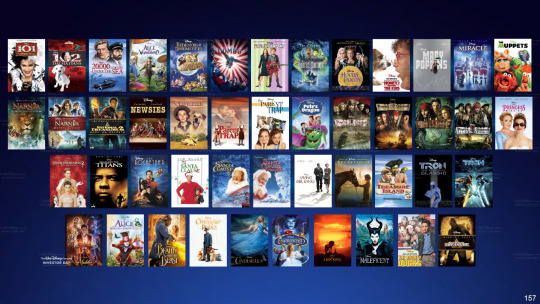
Below is a list of my favorite live-action movies from the Walt Disney Studios. This list is in chronological order:
FAVORITE DISNEY STUDIOS LIVE ACTION MOVIES
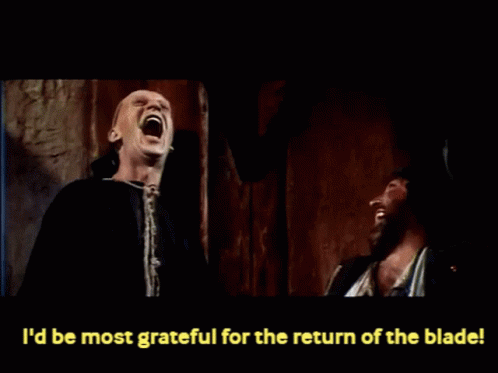
“Treasure Island (1950) - This adaptation of Robert Louis Stevenson’s 1883 adventure novel starred Robert Newton and Bobby Driscoll. Byron Haskin directed.
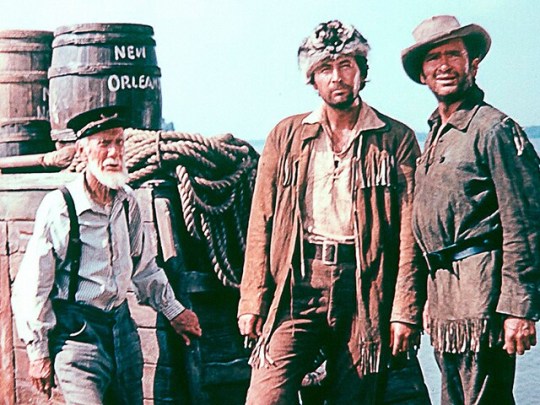
“Davy Crockett and the River Pirates” (1956) - Fess Parker and Buddy Ebsen starred in this prequel to the 1955 movie, “Davy Crockett, King of the Wild Frontier”. Norman Foster directed.
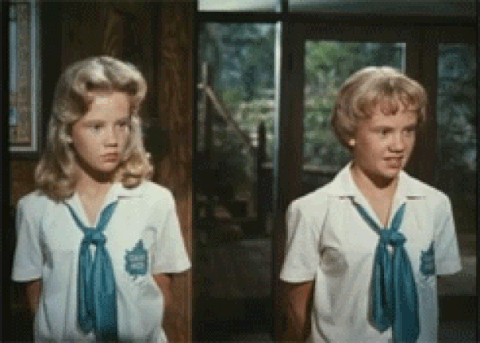
“The Parent Trap (1961) - Hayley Mills starred in this first version of Disney’s film about long-lost twins who scheme to reconcile their divorced parents. Co-starring Maureen O’Hara and Brian Keith, the movie was written and directed by David Swift.
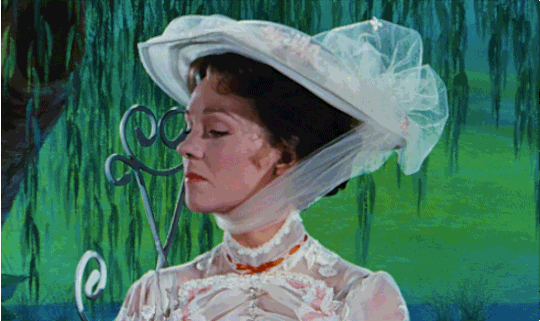
“Mary Poppins” (1964) - Oscar winner Julie Andrews and Dick Van Dyke starred in this award-winning musical adaptation of P.L. Travers series of novellas about a magical British nanny. Robert Stevenson directed.

“That Darn Cat” (1965) - Hayley Mills and Dean Jones starred in this comedic adaptation of Gordon and Mildred Gordon’s 1963 novel, “Undercover Cat”. Robert Stevenson directed.
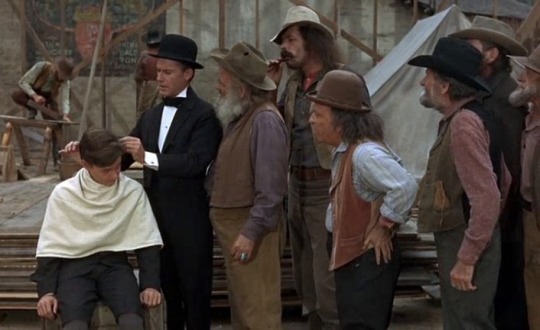
“The Adventures of Bullwhip Griffin” (1967) - Roddy McDowall, Suzanne Pleshette and Bryan Russell starred in this adaptation of Lowell S. Hawley‘s 1963 novel, “By the Great Horn Spoon!“. James Neilson directed.

“Blackbeard’s Ghost” (1968) - Peter Ustinov, Dean Jones and Suzanne Pleshette starred in this comedy adaptation of Ben Stahl’s 1965 novel. Robert Stevenson directed.
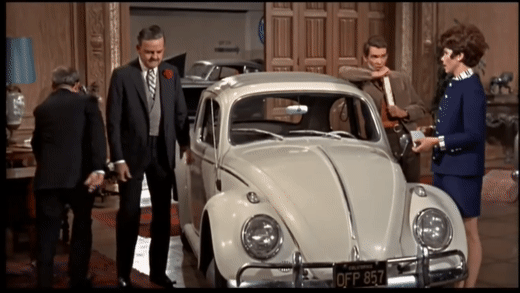
“The Love Bug” (1968-69) - Dean Jones, Michele Lee, David Tomlinson and Buddy Hackett starred in an adaptation of “Car, Boy, Girl", Gordon Buford’s story about a magical Volkswagen. Robert Stevenson directed.

“Bedknobs and Broomsticks” (1971) - Angela Landsbury and David Tomlinson starred in this musical adaptation of Mary Norton’s children books, 1944′s “The Magic Bedknob; or, How to Become a Witch in Ten Easy Lessons” and 1947′s “Bonfires and Broomsticks”. Robert Stevenson directed.
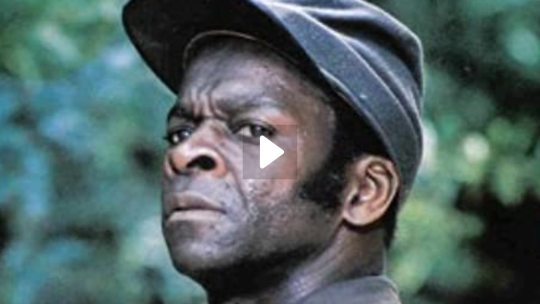
“The Million Dollar Dixie Deliverance” (1978) - Brock Peters starred in this Civil War adventure about a black Union soldier and escaped prisoner of war, who helps five wealthy Northern children being held hostage from Confederate soldiers escape from their captors. Russ Mayberry directed.
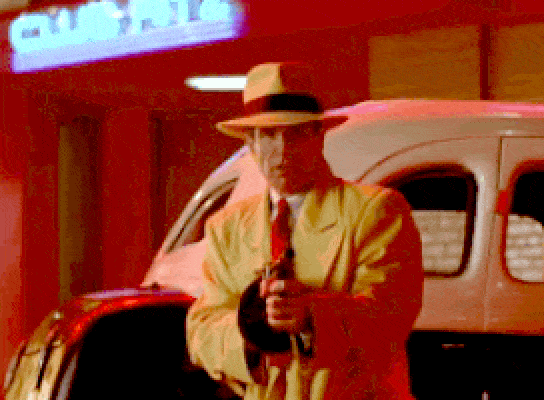
“Dick Tracy” (1990) - Warren Beatty directed and starred in this adaptation of the 1930s comic strip created by Chester Gould. Oscar nominee Al Pacino, Glenne Headly and Madonna co-starred.

“The Rocketeer” (1991) - Bill Campbell starred in this adaptation of the superhero comic book series created by Dave Stevens. Directed by Joe Johnston, the movie co-starred Jennifer Connelly, Timothy Dalton and Alan Arkin.
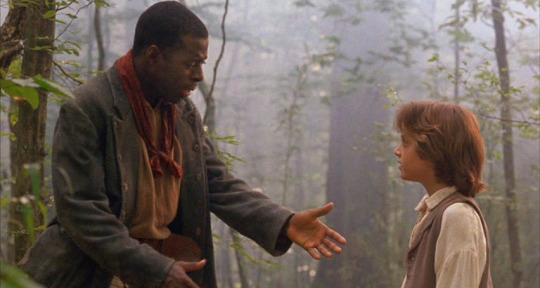
“The Adventures of Huck Finn” (1993) - Elijah Wood and Courtney B. Vance starred in this adaptation of Mark Twain’s 1884 novel, “Adventures of Huckleberry Finn”. The movie was written and directed by Stephen Sommers.
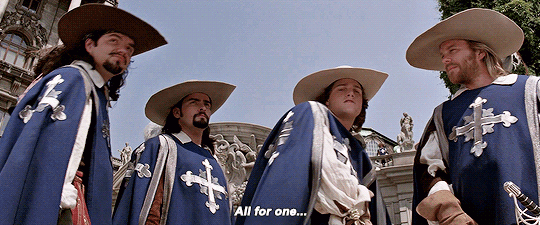
“The Three Musketeers” (1993) - Kiefer Sutherland, Chris O’Donnell, Charlie Sheen and Oliver Platt starred in this loose adaptation of Alexandre Dumas père‘s 1844 novel. Stephen Herek directed.
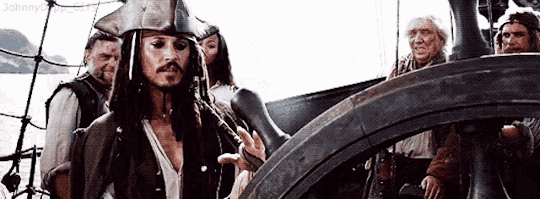
“Pirates of the Caribbean: The Curse of the Black Pearl” (2003) - Johnny Depp starred in the first film of the supernatural swashbuckler film series that was based on a Disney Park attraction. Directed by Gore Verbinski, the movie co-starred Orlando Bloom, Keira Knightley and Geoffrey Rush.

“National Treasure” (2004) - Nicholas Cage starred in the first adventure movie in this film series about a historian and treasure hunter. Directed by Jon Turtelbaub, the movie co-starred Justin Bartha, Diane Kruger, Sean Bean and Jon Voight.

“Pirates of the Caribbean: Dead Man’s Chest” (2006) - Johnny Depp starred in the second movie of the supernatural swashbuckler film series that was based on the Disney Park attraction. Directed by Gore Verbinski, the movie co-starred Orlando Bloom, Keira Knightley and Bill Nighy.
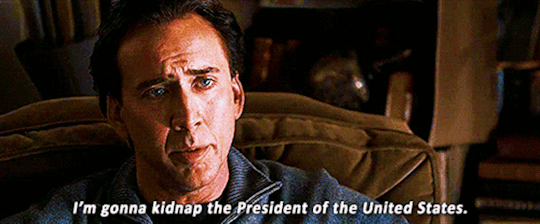
“National Treasure 2: Book of Secrets” (2007) - Nicholas Cage starred in the second adventure movie in this film series about a historian and treasure hunter. Directed by Jon Turtelbaub, the movie co-starred Justin Bartha, Diane Kruger, Jon Voight, Ed Harris and Helen Mirren.

“Prince of Persia: The Sands of Time” (2010) - Jake Gyllenhaal, Gemma Arterton and Ben Kingsley starred in this action-adventure adaptation of Jordan Mechner’s video game series. Mike Newell directed.
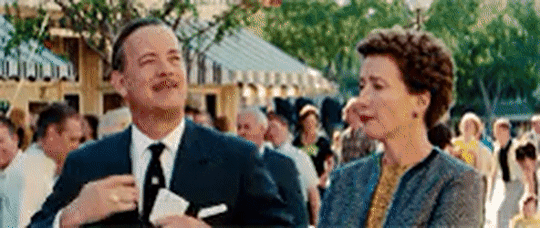
“Saving Mr. Banks” (2013) - Emma Thompson and Tom Hanks starred in this biopic about conflict between author P.L. Travers and filmmaker Walt Disney over the development of the 1964 movie, “Mary Poppins”. John Lee Hancock directed.
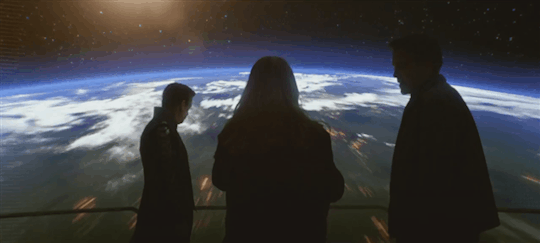
“Tomorrowland” (2015) - George Clooney, Britt Robertson and Hugh Laurie starred in science-fiction adventure about a disillusioned scientist and a teenage science enthusiast embarking on a trip to a futuristic alternate dimension. Brad Bird directed and co-wrote with Damon Lindelof.
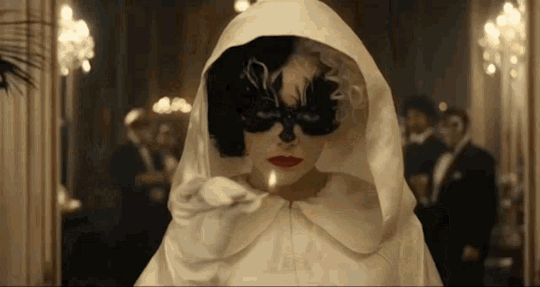
“Cruella” (2021) - Emma Stone starred as the titular character in this crime comedy about the villainess from Dodie Smith's 1956 novel The Hundred and One Dalmatians”. Directed by Craig Gillespie, the movie co-starred Emma Thompson, Joel Fry and Paul Walter Hauser.
Do you have any favorite Disney live-action movies? What are they?

#walt disney studios#disney studios#disney live action#disney live action films#treasure island#treasure island 1950#robert newton#bobby driscoll#robert stevenson#davy crockett#early america#davy crockett and the river pirates#fess parker#buddy ebsen#norman foster#the parent trap#the parent trap 1961#hayley mills#brian keith#maureen o'hara#david swift#mary poppins#p.l. travers#mary poppins 1964#julie andrews#dick van dyke#edwardian age#that darn cat 1965#dean jones#the adventures of bullwhip griffin
3 notes
·
View notes
Note
I've started a class on US history ( particularly around the colonization ) and it's fascinating! Do you have any period you would recommend to look more into?
You picked an interesting time to ask me about US history, through absolutely no fault of your own! (I haven't studied US history since high school, and my AP US History teacher has spent the last 20 or so years in jail for, uh... having relationships with little boys that were 100% NOT OKAY. And I recently found out he's out of prison and has been attempting to track down some of the boys involved [who are all now in their 30s and 40s]. I only know because one is one of my old roommates, and he was dating my best friend, and... well. I saw his name on the list and was just like "okay, this has to be a parole violation of some sort. Also, dude, what the actual fuck?! Several of the boys you hurt later committed suicide. One was found dead by his little sister and her best friend. They were nine. Nine years old. You are a fucking monster. Jesus christ.")
Aside from that... I'm not super well-versed in US history as a whole, but I have enjoyed some books dealing with it, so okay if I mention those? I particularly loved A People's History of the United States (Howard Zinn) and Lies My Teacher Told Me (James Loewen), both of which were seminal in presenting less "whitewashed" versions of US history. I've also enjoyed in recent years The Warmth of Other Suns by Isabel Wilkerson (about the disapora of Black Americans from the Southeast into the Midwest during the 20th century), The American West and Bury My Heart at Wounded Knee, both by Dee Brown (classics of the expansion of settlers into the West in the 19th century, the "cowboy" years), and White Trash by Nancy Isenberg (looking at class in America). Other good, popular writers of US history: David McCullough, Doris Kearns Goodwin, Ron Chernow, Candice Millard. There's some awesome fiction that tackles US history in interesting ways - my favorites are A Tree Grows in Brooklyn (Betty Smith), The Little Friend (Donna Tartt), Forever (Pete Hamill), The Jungle (Upton Sinclair), and basically anything by Steinbeck.
I find the great migration periods particularly interesting, especially the Asian arrivals in the West in the late 19th and early 20th centuries. Early Hollywood is fascinating. There's a wonderful book about it called Silent Stars by Jeanine Basinger. The US also has some honest really good classics in True Crime, especially Truman Capote's In Cold Blood and Norman Mailer's The Executioner's Song. (Truman Capote is also interesting in that he was a very good friend of Harper Lee, who wrote To Kill a Mockingbird.) There were some writers in the mid-20th century who took travel writing and turned it on its head: try Travels with Charley (Steinbeck again!), On the Road (Jack Kerouac - not my personal style, but I understand why it's an American classic!), and Roughing It (Mark Twain). (Honestly, all of Twain's stuff is great, and fucking hilarious. Twain and Wodehouse - in England - had no business being as brilliantly hilarious as they were.)
Also, a weirder rec?
Stephen King's 11/22/63.
Just trust me. And yes, it's that Stephen King.
Again: trust me.
(Other fictional creepiness built around or dealing with North American history [I say North American because I'm including Canada and Mexico]: Alma Katsu's The Hunger, Dan Simmons' The Terror, Silvia Moreno-Garcia's Mexican Gothic [and I just got her Velvet was the Night, but haven't read it yet!], Toni Morrison's Beloved, basically anything by Cormac McCarthy. [Content warning, some of these are a little stomach-churning to get through. Reader beware!] I've also recently been recommended S. Craig Zahler's Westerns, but haven't read them yet, so be warned there that he's the guy who wrote Bone Tomahawk! If you know... you know. If you don't... not recommended viewing while eating. 🤷♀️ And speaking of Westerns, Larry McMurtry's Lonesome Dove is absolutely wonderful. And not stomach-churning!)
Hope that helps! If there are any specific periods that catch your interest, I can dig into recommendations for further reading/watching. US history isn't always my personal cup of tea, but my mother's been writing books and articles about it for 30 years, so I can always ask for recs! 😁
6 notes
·
View notes
Text
George Orwell published 1984 six months before dying of tuberculosis at age 47. Huckleberry Finn came out when Mark Twain was 49. Raymond Chandler wrote The Big Sleep at 51. Richard Adams published Watership Down at 52. Pulitzer winner Annie Proulx didn't publish her first book until she was 57. Angela's Ashes came out when Frank McCourt was 66. Norman Maclean debuted A River Runs Through It at 74.
Never too late. Never, never, never.
Toni Morrison was 39 when she published her first book, The Bluest Eye. Zora Neale Hurston was 43. Maya Angelou was 41. Ralph Ellison was 39.
August Wilson was 34 when he wrote his first play, Jitney.
It’s never too late to start…or start again.
3K notes
·
View notes
Photo

( Old Memories - “Tom Sawyer Sneaking Out Window” by Norman Rockwell... | Facebook) “Tom Sawyer Sneaking Out Window” by Norman Rockwell (1936)George Macy of the Heritage Press invited Rockwell to illustrate Mark Twain's Tom Sawyer and Huckleberry Finn. Rockwell was passionate about this opportunity writing, "It's fun to do a really good book, but only the best titles give me any satisfaction. Mark Twain's Tom Sawyer and Huckleberry Finn are of the type I enjoy. These had long intrigued me, so when [I was] invited to illustrate them, I was able to throw myself into the task with real enthusiasm."To capture the authentic details of the story's setting, Rockwell visited Hannibal, Missouri. At the time he was the only illustrator of the Tom Sawyer stories who went to the site. When describing the experience Rockwell claimed that "The whole town of Hannibal lives in the memories of Tom and Huck-or rather, of Mark Twain. He depicted things just as they actually were. The Tom sawyer story is truly autobiographical in the sense that even if Mark Twain didn't personally do some of the things attributed to Tom, he understood exactly how Tom would have done them. That made my task as illustrator an exceptionally interesting one." -Norman Rockwell from Arthur L. Guptill's Norman Rockwell Illustrator
0 notes
Text

The Mark Twain Boyhood Home and Museum 7 properties all include exhibits. Interpretive Center focuses on a timeline of Samuel Clemens, the Becky Thatcher House focuses on Childhood in the 1800's, J. M. Clemens Justice of the Peace Office exhibits focus on the judicial system, Grant's Drugstore introduces medicine, pharmacy and life in the 1800's, the Museum Gallery includes exhibits on five of Twain's books, life as a riverboat captain, Norman Rockwell and Clemens family.

#literature books#interactive exhibits#historic house museum#adult and higher education#secondary#middle school#elementary
0 notes
Text
Die richtigen Fragen stellen

“Prognosen sind schwierig, besonders wenn sie die Zukunft betreffen.” Diese Aussage, die wahlweise dem US-amerikanischen Autoren Mark Twain oder dem deutschen Komiker Karl Valentin zugeschrieben wird, lässt sich ganz leicht auf die Cyber-Sicherheit übertragen. In unserer Branche ist es manchmal sogar schwer vorherzusagen, was in den kommenden 30 Sekunden passieren wird – ganz zu schweigen von zwölf Monaten. Meine Kolleg:innen und ich glauben, dass es zielführender ist, auf (mehr oder weniger vage) Prognosen zu verzichten und stattdessen (schwierige und auch unangenehme) Fragen zu stellen – um so neue Denkansätze zu schaffen. Viele Vorhersagen in der IT-Branche beschreiben lediglich das „Was” und „Wie”, nur wenige befassen sich auch mit dem „Wann, Wo, Warum und Wer”. Doch genau das sind die Fragen, auf die es wirklich ankommt. Von Albert Einstein stammt der Ausspruch „Wenn ich eine Stunde Zeit hätte, um ein Problem zu lösen, würde ich 55 Minuten damit verbringen, über das Problem nachzudenken und fünf Minuten über die Lösung.” Denn sobald man die richtige Frage kennt, kann man das Problem in kurzer Zeit lösen. Auch das ist eine Erkenntnis, die meiner Meinung nach auf die Cyber-Sicherheit zutrifft. Gerade jetzt stehen die Verantwortlichen in Unternehmen und Behörden angesichts der sich immer schneller weiterentwickelnden Bedrohungslage vor großen Herausforderungen. Daraus ergeben sich vier zentrale Fragen, die auf allen Führungsebenen gestellt werden sollten. Die richtigen Fragen führen zu guten Antworten - 1. Verfügen wir über das erforderliche Wissen, um Risiken richtig einzuschätzen? “Mancher ertrinkt lieber, als dass er um Hilfe ruft.” lautet einer der vielen bekannten Aussprüche des deutschen Dichters Wilhelm Busch. Es zeigt sich leider immer wieder, dass die Verantwortlichen in Organisationen (zu) wenig Erfahrung im Bereich Cyber-Sicherheit haben, viele überschätzen auch Qualität und Wirksamkeit ihrer Verteidigungssysteme. Deshalb ist es wichtig, ganz allgemein in manchen Dingen des Lebens bescheiden zu bleiben und ganz konkret Expert:innen um Hilfe zu bitten. Im Idealfall nicht erst, wenn der gefürchtete Ernstfall bereits eingetreten ist. - 2. Können unsere Mitarbeiter bestochen werden? Die Hackergruppe Lapsus$ hat genau das getan: Sie verschaffte sich laut Microsoft “den ersten Zugang auf verschiedene Arten, beispielsweise durch die Bezahlung von Mitarbeitern, Zulieferern oder Geschäftspartnern der Zielunternehmen für den Zugriff auf Anmeldedaten und die Genehmigung der Multifaktor-Authentifizierung.” Anders ausgedrückt: Manchmal ist es noch einfacher als in dem Ausspruch des französischen Dramatikers Molière „Wo sich eine Türe schließt, öffnet sich eine andere.“ Denn wenn man einfach durch die Tür hineingelassen wird, muss man noch nicht einmal einbrechen. Zum Pflichtprogramm sollten kontinuierliche Mitarbeiter-Trainings zu IT-Sicherheit und Compliance gehören, um diese potenzielle Lücke zu schließen. - 3. Was ist die ausgefallenste Art, wie Hacker auf unsere Daten zugreifen könnten? Die Idee hinter der Redewendung „think outside the box” – im Deutschen vergleichbar mit dem “Blick über den Tellerrand” – stammt von Norman Maier. Der amerikanische Psychologe definierte das Konzept hinter der Redewendung, die in den 70er und 80er Jahren des vergangenen Jahrhunderts von vielen Unternehmensberatern genutzt wurde, bereits 1930. Er stellte fest, dass weniger als fünf Prozent der Studenten diese Fähigkeit besaßen. Sie waren in ihrer Denkweise so stark eingegrenzt, dass sie den sprichwörtlichen Wald vor lauter Bäumen nicht sahen. Daher ist es notwendig, ein Umfeld zu schaffen, in dem Innovationen gefördert werden, damit Teams über den Tellerrand hinausblicken können. - 4. Kümmern wir uns um die wichtigsten Bedrohungen – oder nur um die dringendsten? Das nach dem ehemaligen US-Präsidenten benannte Eisenhower-Prinzip ist eine Möglichkeit, Aufgaben nach Dringlichkeit und Wichtigkeit zu kategorisieren: Es gibt “zwei Arten von Problemen: die dringenden und die wichtigen. Die Dringenden sind nicht wichtig, und die Wichtigen sind nie dringend.” Sein Entscheidungsprinzip war einfach, nur die dringenden UND wichtigen Dinge hatten für ihn Priorität. Security-Teams sollten sich davon leiten lassen – beispielsweise bei der Priorisierung von Sicherheitsrisiken in IT und OT. Über SentinelOne SentinelOne ist ein weltweit führender Anbieter von KI-Sicherheit. Die Singularity-Plattform erkennt, verhindert und reagiert auf Cyberangriffe in Maschinengeschwindigkeit – und ermöglicht es Unternehmen, ihre Endpunkte, Cloud-Workloads, Container, digitalen Identitäten sowie mobilen und mit dem Netzwerk verbundenen Geräte schnell, präzise und einfach abzusichern. Passende Artikel zum Thema Lesen Sie den ganzen Artikel
0 notes
Link
Many people developed unhealthy habits during the COVID-19 pandemic that still linger today. In part 2 of a special live recording, Brian examines why it’s so easy to drift into bad habits and shares some powerful tips to create good habits that will last a...
0 notes
Text
35 Motivating Quotes on Criticism and How to Respond to It

The best critique quotes and sayings from renowned authors are provided here for your reading pleasure. We hope that these criticism quotes will assist you in any way in learning more about criticism, how it impacts other people's lives, and how to deal with it. Criticism is the practise of people making judgments about the virtues and flaws of someone or something, and it is referred to as an evaluative or corrective exercise that occurs in any aspect of human life. You can tell your friends, family, and other people you care about about these motivational criticism quotes.

Motivating Quotes on Criticism and How to Respond to It “Criticism is an indirect form of self-boasting.” – Emmet Fox “When virtues are pointed out first, flaws seem less insurmountable.” – Judith Martin “Remember: when people tell you something’s wrong or doesn’t work for them, they are almost always right. When they tell you exactly what they think is wrong and how to fix it, they are almost always wrong.” – Neil Gaiman “Any fool can criticize, condemn, and complain but it takes character and self-control to be understanding and forgiving.” – Dale Carnegie “The pleasure of criticizing takes away from us the pleasure of being moved by some very fine things.” – Jean de La Bruyère “Criticism is something we can avoid easily by saying nothing, doing nothing, and being nothing.” �� Aristotle “You can't let praise or criticism get to you. It's a weakness to get caught up in either one.” – John Wooden “The trouble with most of us is that we'd rather be ruined by praise than saved by criticism.” – Norman Vincent Peale “When we judge or criticize another person, it says nothing about that person; it merely says something about our own need to be critical.” – Unknown “Don’t criticize what you don’t understand, son. You never walked in that man’s shoes.” – Elvis Presley “Criticism, like rain, should be gentle enough to nourish a man’s growth without destroying his roots.” – Frank A. Clark “People tend to criticize their spouse most loudly in the area where they themselves have the deepest emotional need.” – Gary Chapman “Criticism is the disapproval of people, not for having faults, but having faults different from your own.” – Unknown “Before you go and criticize the younger generation, just remember who raised them.” – Unknown “Who do you spend time with? Criticizers or encouragers? Surround yourself with those who believe in you. Your life is too important for anything less.” – Steve Goodier “He has a right to criticize, who has a heart to help.” – Abraham Lincoln “If we judge ourselves only by our aspirations and everyone else only their conduct we shall soon reach a very false conclusion.” – Calvin Coolidge “I have no right, by anything I do or say, to demean a human being in his own eyes. What matters is not what I think of him; it is what he thinks of himself. To undermine a man's self-respect is a sin.” – Antoine de Saint-Exupery “Do what you feel in your heart to be right – for you’ll be criticized anyway. You’ll be damned if you do, and damned if you don’t.” – Eleanor Roosevelt “One mustn't criticize other people on grounds where he can't stand perpendicular himself” – Mark Twain “That was excellently observed’, say I, when I read a passage in an author, where his opinion agrees with mine. When we differ, there I pronounce him to be mistaken.” – Jonathan Swift “Any fool can criticize, condemn and complain and most fools do.” – Benjamin Franklin “Flatter me, and I may not believe you. Criticize me, and I may not like you. Ignore me, and I may not forgive you. Encourage me, and I will not forget you. Love me and I may be forced to love you.” – William Arthur Ward “Don’t criticize them; they are just what we would be under similar circumstances.” – Abraham Lincoln “It is much more valuable to look for the strength in others. You can gain nothing by criticizing their imperfections.” – Daisaku Ikeda “The artist doesn’t have time to listen to the critics. The ones who want to be writers read the reviews, the ones who want to write don’t have the time to read reviews.” – William Faulkner “If we judge ourselves only by our aspirations and everyone else only their conduct we shall soon reach a very false conclusion.” – Calvin Coolidge “I have yet to find the man, however exalted his station, who did not do better work and put forth greater effort under a spirit of approval than under a spirit of criticism.” – Charles Schwab “I criticize by creation, not by finding fault.” – Marcus Tullius Cicero “Let me never fall into the vulgar mistake of dreaming that I am persecuted whenever I am contradicted.” – Ralph Waldo Emerson "To avoid criticism say nothing, do nothing, be nothing." - Elbert Hubbard "If we had no faults we should not take so much pleasure in noting those of others." - François de La Rochefoucauld "It is much more valuable to look for the strength in others. You can gain nothing by criticizing their imperfections." - Daisaku Ikeda "Don't pay any attention to what they write about you. Just measure it in inches." - Andy Warhol "Often those that criticise others reveal what he himself lacks." - Shannon L. Alder "One of the most valuable things one of my art teachers said to me was, 'Don’t get upset by criticism. Value the fact that at least someone noticed what you did." - Chris Ware "A creative life cannot be sustained by approval any more than it can be destroyed by criticism." - Will Self Read the full article
0 notes
Photo

Some recently-adopted, vintage Modern Library editions
#modern library#eudora welty#lewis carroll#norman mailer#mark twain#alice in wonderland#alice's adventures in wonderland#the naked and the dead#through the looking glass#a connecticut yankee in king arthur's court#short stories
161 notes
·
View notes